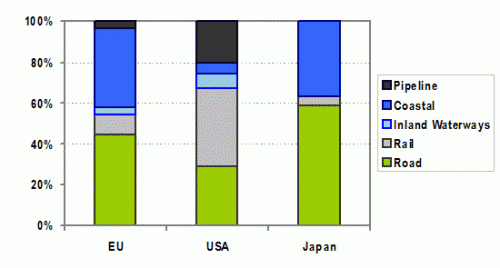For the Left, Do Asians "Count"?
I was filling out my EEO-1 forms the other day (that is a distasteful exercise where the government is leading us towards a post-racial society via mandatory reporting on the race of each of my employees). For each employee there are five non-white categories: Black, native American, native Hawaiian, Hispanic, and Asian. I started to think how interesting it is that the Left supports numerous government interventions in support of the first four, but never mentions Asians.
This can't be solely due to lack of past discrimination. Watch a movie from the 1930's or 1940's and you will see Asians shamelessly stereotyped** as badly as any other race. And generations who lived and fought WWII had many members, even a majority, that harbored absolute hatred against one Asian people, the Japanese. We only sent one group to concentration camps in the 20th century, and it was not blacks or Hispanics. Of course "Asians" is an awfully broad categorization. It includes Chinese, with whom we have had a complicated relationship, and Indians, for whom most Americans until recently probably have had little opinion at all one way or another.
One problem for many on the Left is the fact that Asians are considered a serious threat (both as immigrants and as exporters) to the Left's traditional blue collar union base. Another is that they are an emerging threat to their little darlings trying to get into Harvard. I have heard the squeakiest-clean, most politically correct liberals utter to me the most outrageous things about Asian kids. Which is why I was not really surprised that white parents in California who claim to support merit-based college admissions immediately change their tune when they find out that this will mean that far more Asia kids will get in.
I have been working with some data on state voting and voter registration patterns by race in the wake of the recent Supreme Court decision vis a vis the Voting Rights Act. The Left went nuts, saying that blacks and Hispanics would again be discriminated against in the South, and the Obama Administration vowed to get on the case, saying that it would begin with Texas.
By the way, Texas may make perfect sense politically for Obama but is an odd choice based on the data. Minority voter registration and voting rates as compared to the white population are usually used as an indicator of their election participation and access. In the last election, according to the Census Bureau in table 4B, blacks in Texas both registered and voted at a higher rate than whites. In Massachusetts, by contrast, in that same election blacks registered at a rate 10 percentage points lower than whites and voted at a rate about 7 points lower.
But if you really want something interesting in the data, look at the data and tell me what group, if we accept that low participation rates equate to some sort of covert discrimination, deserves the most attention (from the same table linked above):
US Voter Registration Rates (Citizens Only)
White: 71.9%
Black: 73.1%
Hispanic: 58.7%
Asian: 56.3%
US Voting Rates (Citizens Only, last Presidential election)
White: 62.2%
Black: 66.2%
Hispanic: 48.0%
Asian: 47.3%
** Postscript: I am not an expert on discrimination, but I watch a lot of old movies and read a lot of history. To my eye, stereotyping of Asians has been more similar to anti-Semitic portrayal of Jews than to stereotyping of blacks or Hispanics. Blacks and Hispanics have most often been stereotyped as lazy and unintelligent. Asians and Jews are more frequently stereotyped as scheming, plotting, and intelligent-but-evil. Frank Capra, who directed a lot of good movies also directed a series of heavy-handed propaganda movies for the government during the war. The one on Japan is interesting -- your gardener's quiet mien is actually masking a nefarious scheme. Even in the 1940's Japan was portrayed as economically frightening to us.
Update: Over the last couple of elections, Asians have shifted to voting fairly heavily Democratic. So a cynical person would suggest that they might suddenly "discover" this group. We shall see.


